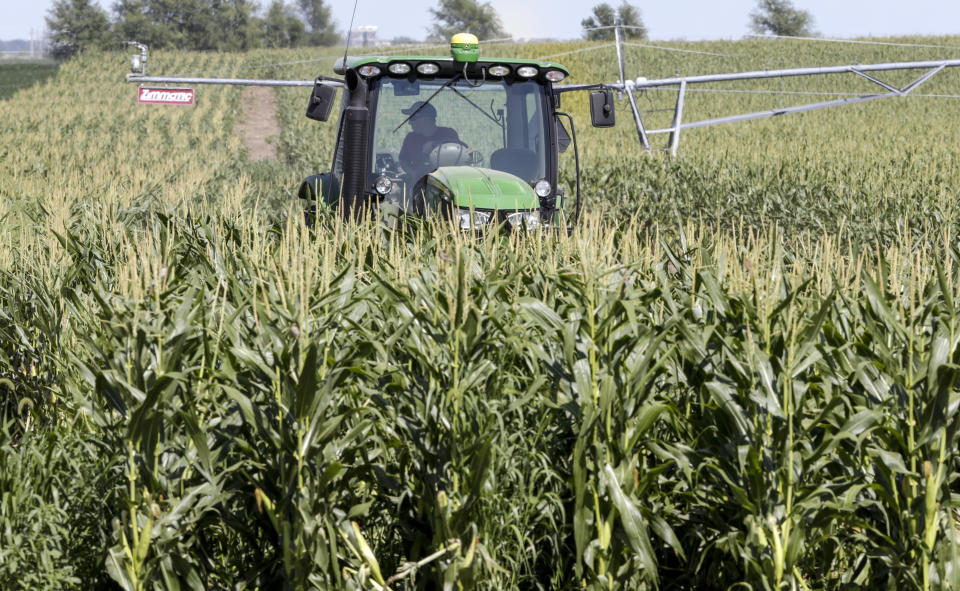Why the US-China trade war and bad weather create more problems for farmers
The farm economy in parts of the midwest remained weak in the second quarter of 2019, but farm income and credit conditions show some signs of stabilizing, according to Nathan Kauffman, vice president of the Federal Reserve Bank of Kansas City.
“The outlook looks a little bit better than it had at the beginning of the year but that doesn’t necessarily mean that it’s a positive outlook,” Kauffman told Yahoo Finance’s On the Move.
Farmers face several problems that are beyond their control, including the U.S.-China trade war, which could continue to depress incomes.
The latest Ag Credit Survey from the Kansas City Fed reports 40% of bankers say farm income was lower in the second quarter, continuing a trend that Kauffman said has persisted for more than five years and may not improve.
Flooding, earlier this year, prevented planting of crops like corn and soybean. “It was a wet spring in large parts of the country,” Kauffman said. “Many of the acres for corn and soybeans likely were not planted but still hard to gauge exactly what that might look like,” he said, until farmers begin harvesting their crops.
Harvest underway

The harvest is well underway in the south, according to the USDA National Agricultural Statistics Service but it’s just beginning in the midwest. The question farmers and investors are asking focuses on crop yield.
Production is expected to be down from last year. The USDA says corn production will fall 4% and soybean production will fall 19% compared to 2018. That might usually help prices increase but uncertainty about the harvest, which may be better than predicted, is keeping prices down.
The Teucrium Corn Fund (CORN) closed down 1.6% Tuesday, while the Teucrium Soybean (SOYB) was essentially flat. Soybean farmers who are hit hard by the U.S.’s trade war with China have been able to use government relief payments to stay in business, according to the Fed. But Kauffman said the value of farmland is also helping sustain farmers.
“Farmland values or the value of farm real estate has been holding up pretty well. So, there have been some silver linings, but I still would characterize it as a relatively downbeat environment with risks still high,” he said.
Demand for loans
The Kansas City Fed survey found that demand for agricultural loans remained high but bankers expect it to fall in the coming months. Seventy-five percent of those bankers also reported they denied at least 1% of all applicants the money they wanted to borrow.
While that is an improvement over previous years, Kauffman said lending conditions are tight. “I think that there still is a lot of concern about what cash flow might look like within the agricultural sector and so you’re seeing some lenders still taking a very conservative approach to lending.”
Adam Shapiro is co-anchor of Yahoo Finance On the Move.
Read the latest financial and business news from Yahoo Finance